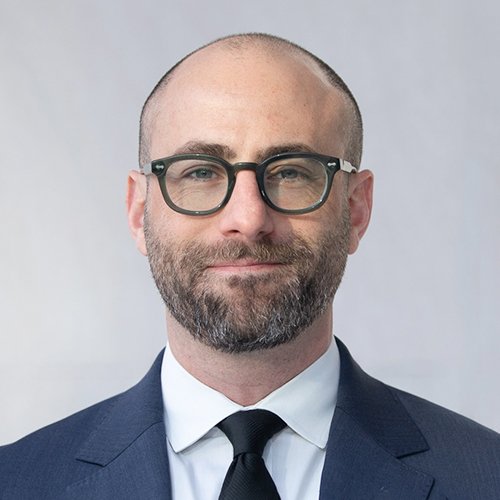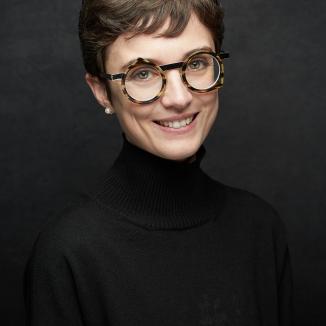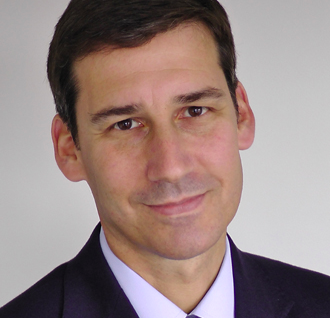The Implications of New German and EU Policies for the Transatlantic Trade Relationship

Speakers
Michelle Egan, Professor and Jean Monnet Chair ad personam, Co-Director of the Transatlantic Policy Center in the School of International Service, American University
Philip Luck, Director of the Economics Program and Scholl Chair in International Business, Center for Strategic and International Studies
Matthias Krämer, Head of the Department of External Economic Policy, The Federation of German Industries (BDI)
Silvia Merler, Nonresident Fellow, Bruegel
Alexander Privitera, Non-Resident Senior Fellow, AGI
Moderator
Peter Rashish, Vice President and Director, Geoeconomics Program, AGI
This webinar focuses on the evolution of German and EU trade, fiscal, defense, and industrial policies and their implications for the United States and the global economy. Among the issues that will be addressed are the importance of economic security vs. free trade in German and EU trade policy, the ramifications of the Draghi and Letta Reports for the EU as a geoeconomic actor, and the transatlantic and global economic consequences of the proposed new German debt rules and investment spending.

Michelle Egan is a Professor and Jean Monnet Chair ad personam, Co-Director of the Transatlantic Policy Center in the School of International Service, American University. She is the author and editor of five books, and numerous articles and blogs on issues related to single market integration, foreign economic policy, transatlantic relations, subnational politics, and global governance. Currently working on a book on British post-war economy and papers on EU FDI screening. She has received fellowships from the Council on Foreign Relations, the Wilson Center and AGI (formerly AGI) as a Bosch Fellow.

Philip A. Luck is director of the CSIS Economics Program and Scholl Chair in International Business. He served in the Biden-Harris administration as the deputy chief economist at the U.S. Department of State. Dr. Luck is an expert on the economics of international trade, global supply chains, and international migration policy. He has spent his career in public service, both in government and academia. At the Department of State, Dr. Luck led analytical efforts to combat sanctions and export control evasion, increase global supply chain resilience, combat economic coercion, as well as improve migration policy design and implementation. Prior to joining the U.S. Department of State, Philip was an assistant professor of economics at the University of Colorado, Denver. Dr. Luck’s research focuses on the international organization of production—specifically, how international trade and migration impact the structure of firms, supply chains, demand for skills, labor market dynamics, and aggregate welfare. His research has been published in leading economic journals, including the Review of Economics and Statistics, Journal of Labor Economics, Journal of Economic Geography, and Review of International Economics. His work has also been covered in major publications including the New York Times, The Economist, the Wall Street Journal, the Financial Times, and RealClear Markets. A devoted teacher, he has taught at Drexel University and Claremont McKenna College as well as the University of Colorado, Denver. He graduated with honors in economics from the University of Massachusetts, Amherst, and earned MSc and PhD degrees in economics from the University of California, Davis.

Matthias Krämer has been the head of the Department for External Economic Policy at theFederation of German Industries (BDI) since January 2021. He is responsible for all fundamental issues of foreign economic policy. This includes essential concepts of global economic development and international trade policy, German and European foreign economic and trade policy, transatlantic trade relations and investment policy. Moreover, he represents the BDI in numerous international boards (B7, B20, B20 Coalition, BIAC, ICC, BUSINESSEUROPE) and is editor of the BDI newsletter “Focus Global Trade & Investment”. He studied economics at the Johannes Gutenberg University in Mainz and at the Université de Bourgogne in Dijon. After his studies, Matthias Krämer worked as a consultant in International Corporate Auditing at AgrEvo Hoechst Schering GmbH in Berlin. He joined BDI in 1999. Here, he initially worked as a senior manager in the Economic Policy Department. In 2008, he moved to corporate communications at DZ Bank in Frankfurt/Main. In 2010, he became head of the Department for Association Development, Members and Customers, Project and Process Management at the BDI. From 2011 to 2015, Matthias Krämer was head of the Department for SMEs, Family Businesses and Association Development, and from 2015 to 2017 head of the Department for Mobility and Logistics. From 2017 to 2020, he led the Department for Strategic Planning and Coordination.

Silvia Merler is a Non-resident fellow at Bruegel and the Head of ESG and Policy Research at Algebris Investments. She joined Bruegel as Affiliate fellow in August 2013. Her main research interests include international macro and financial economics, central banking and EU institutions and policy making. Before joining Bruegel, she worked as Economic Analyst in DG Economic and Financial Affairs of the European Commission (ECFIN). There she focused on macro-financial stability as well as financial assistance and stability mechanisms, in particular on the European Stability Mechanism (ESM), providing supportive analysis for the policy negotiations.

Alexander Privitera is a Geoeconomics Non-Resident Senior Fellow at AGI. He is a columnist at BRINK news and professor at Marconi University. He was previously Senior Policy Advisor at the European Banking Federation and was the head of European affairs at Commerzbank AG. He focuses primarily on Germany’s European policies and their impact on relations between the United States and Europe. Previously, Mr. Privitera was the Washington-based correspondent for the leading German news channel, N24. As a journalist, over the past two decades he has been posted to Berlin, Bonn, Brussels, and Rome. Mr. Privitera was born in Rome, Italy, and holds a degree in Political Science (International Relations and Economics) from La Sapienza University in Rome.
This event is made possible by support from the Konrad Adenauer Stiftung.






